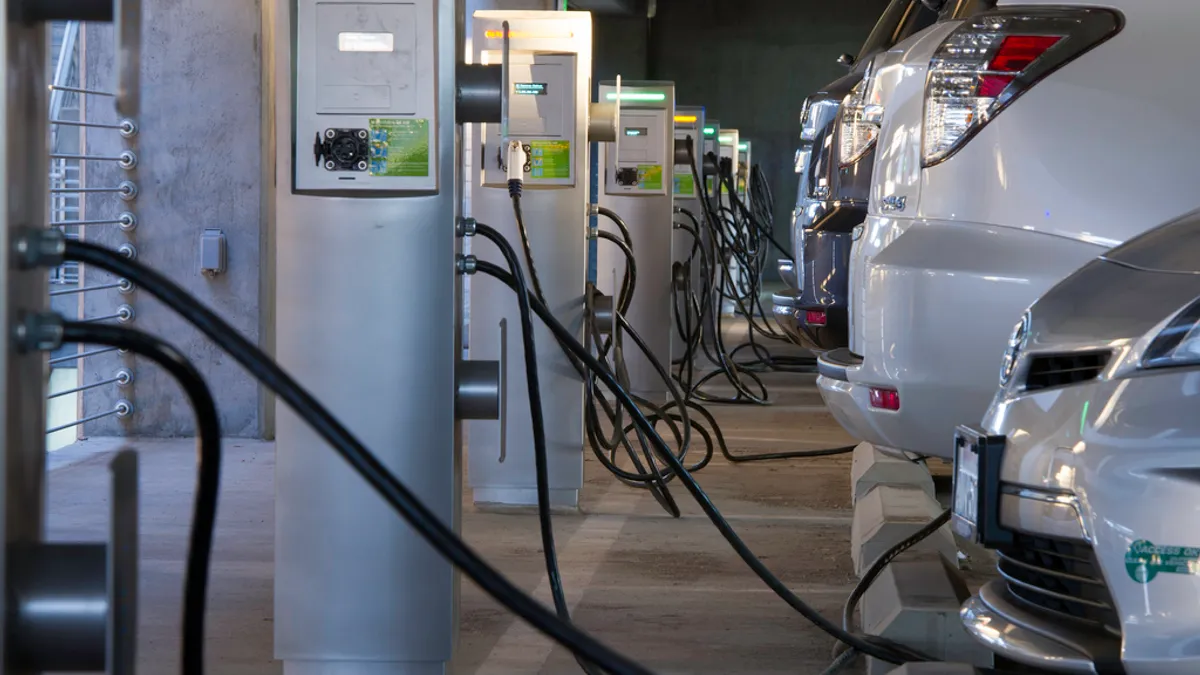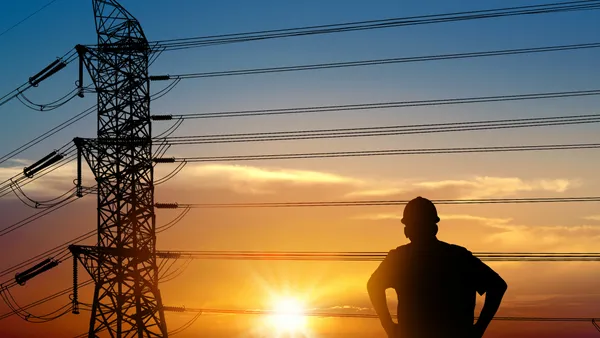Dive Brief:
- Kettering University researchers in Michigan are working on creating a “smart” electric vehicle charger, Microgrid Knowledge reports.
- The smart EV charger would be bi-directional and work in with solar systems to charge EVs or other battery systems without reliance on fossil fuels.
- The smart EV charger also would be able to act as a form of microgrid with the ability to react and respond to grid conditions, such as blackouts, as they arise.
Dive Insight:
Researchers at Kettering University in Michigan are developing an electric vehicle (EV) charger that is bidirectional in power flow and accepts inputs from solar power to charge EVs or other battery systems without fossil fuels.
The prototype for the device is being worked on and tested at Kettering’s Advanced Power Electronics Lab (APEL) and being developed for CZAR (Carbon Zero Advanced Research) Power.
The device would be capable of interacting with solar power sources, storing energy and serving as a hub that connects several elements in the renewable energy world, the battery, the storage system and the traditional utility. “It will form a small micro-grid system,” Nelson Wang said. Wang, a Ph.D. candidate in electrical engineering at the Massachusetts Institute of Technology (MIT), co-founded CZAR Power in 2014.
The research team has patents on some of the new technology, which differentiates it from other chargers currently on the market. APEL has done work on hardware as well as performed temperature and safety tests. Wang’s MIT collaborators have worked on software, including communication and controls for a smart grid system.
“A long time ago, we only used cellphones to make calls,” Wang said. “But now, most people use their phone as an entire system. We want to apply that idea to the charger. It will potentially have a big impact on society.”
The researchers say the device would charge vehicles more economically and promote future microgrid development, resulting in a less centralized grid. For instance, they say, in a blackout the device would allow a house or vehicle to still have access to power.
The researchers also are working to connect the charging station to the Internet, so that drivers could obtain the location of the charging station through their phones. Users would also be able to monitor their solar power usage against energy used from the grid and calculate the real cost for electricity used.
The research team has fully tested the system and is now working on making it more efficient and increasing its power density. Some initial tests have shown about 96% efficiency.
Once completed, the market for this type of charger is large, particularly in foreign countries where the proliferance of electric vehicles is greater. CZAR Power has had investors and interest from companies in Japan and China. There’s also potential to get the technology into the U.S. market if testing continues to go well.












